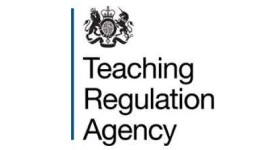Topic outline
Complaints and safeguarding concerns
The local authority officers understand the pressure that a complaint about a school or personnel creates for school leaders. However, the governing body or board of trustees are responsible for managing complaints in a school not the local authority, and to support this all schools must have an agreed complaints process available on their website.
Schools may also wish to consider developing a Zero Tolerance policy to avoid repetitive complaints, and a clear communication strategy that outlines reasonable approaches to communication.
Best practice guidance for school complaints procedures 2020 - GOV.UK
The local authority does however have overarching responsibility for safeguarding and special education needs (SEND) in all of its schools regardless of the school’s status, and therefore there are times when a concern is raised with the local authority and when it described as being a safeguarding or SEND concern.
Such concerns can be raised with the local authority by:
- Ofsted,
- the DfE
- a direct contact through the local authority’s complaints portal,
and may be on behalf of
- a pupil/parent/ member of the public
- a Member of Parliament on behalf of a constituent,
- a county councillor on behalf of a member of their Ward.
Wherever possible the first response is to direct the complainant to use the school’s complaints’ process, but frequently further enquiry is required.
Where this is the case, senior officers are required to liaise with both maintained schools and academies to determine the origin of the concern and its detail. This is usually led by the school improvement manager, but may be a senior officer in social care, SEND, or from the inclusion support service.
There are also times when the linked school improvement manager needs to across several departments to cover all aspects of the concerns that are raised. At all times the concerns raised and support for school leaders, will be handled sensitively.
Where appropriate the school leader will be contacted to discuss the concern and the identified local authority respondent will prepare a for Ofsted, the DfE or the MP, councillor as appropriate.
All written responses are agreed by the Assistant Director (E&I) and use a formal response template.
The local authority and Ofsted may intervene in a school where there are safeguarding concerns or issues in relation to SEND practice.
When the complaint/ concern has already been received and managed by the governing body/trustees, the DfE/Secretary of State will not overrule a governing body decision but may direct it to review its decision in line with a policy.
External complaint routes
The following table summarises the complaint routes that are frequently used:
Complaints made to
Detail and links
How is this responded to?
Further comments
The LA or Director of Children’s Services - directly
Complaints about a school matter
The Complaints/ Team
- refers the complainant to school’s/Trust’s complaints’ policy
- update Assistant Director (AD) – update County Education Manager (CEM)
Ofsted
Ofsted should triage the complaint to determine whether it meets their threshold for safeguarding, categorise the concern and share it with the LA, or dismiss.
Rarely is the concern dismissed.
- AD shares with relevant CEM
- Depending upon concerns raised the school is contacted
- Response drafted including that complainant MUST use the legal process of following the school/Trust’s complaints’ policy
- An HMI may wish to discuss the concerns raised with a senior officer, so meetings are arranged
- Ofsted will retain the concern/complaint on the school’s portal to be accessed at the next scheduled inspection, and which may inform a line of enquiry.
- The frequency of externally received complaints to Ofsted may trigger an unannounced inspection.
DfE
To be used when a complainant is not happy in the way in which a complaint has been dealt with, a child is not getting an education, or a child has been exposed to harm
The DfE will
- write to the LA and share the concern, for it to consider
- write to the school and request that they submit their complaint investigate paperwork and response to the complaint/complainant to the DfE, for checking its compliance and congruence against the complaint’s policy, and inform the LA
- DfE is largely checking that the school governance is not in breach of its complaints’ policy in respect of the process- rarely questioning the conclusion.
- The DfE’s website states that at the point of a complainant using the DfE portal, their communication with the school should be uploaded to demonstrate that the earlier process has been completed, however it is not necessary to do this in order to proceed
Councillors
MP
Complainant uses district councillor contact
Complainant uses MP contact
The councillor/MP should direct the complainant to the school’s complaints process; at times schools have raised that a complainant contacting a councillor has enabled them to by-pass the agreed legal process, underwritten by the school’s complaints’ policy.
If a councillor/MP complaint is received by the LA, the Director CS or AD-E&I may request that the relevant CEM responds.
- Councillors/MPs are advised that the local authority cannot disclose personal information about pupils to them, or risk being in breach of safeguarding regulations.
- Councillors/MPs are advised to be aware that the information reported to them may not be complete, and that there have been occasions when councillors have become personally involved which might affect their objectivity.
- If there is a view that the complainant needs help to be able to navigate the complaints process, there are organisations such as Parent Partnership that can assist.
- If a written response is made by the LA to a councillor/MP the response may be shared in full with the complainant.
The Teacher Regulation Agency - TRA
Referrals can also be made to the Teacher Regulation Agency; over the past few years there been a number of leaders and teachers who have been referred. This has a different enquiry process and does not involve the local authority in any way.
In order to support the increasing number of school leaders who have been affected by such referrals, guidance about what to expect in this case is outlined below.
If you are made aware of any TRA referral that involves any current or former member of your school staff, please contact your School Improvement Manager and your HR adviser, for both professional support and personal guidance.
Concern raised with
Detail and links
Further information
Teacher Referral Agency - TRA
Teacher misconduct: referral form - GOV.UK
Report Serious Teacher Misconduct:
- Online: Use the GOV.UK service to report serious misconduct.
- Email: Fill in the teacher misconduct referral form and email it to misconduct.teacher@education.gov.uk.
What counts as serious teacher misconduct
Serious misconduct is any behaviour that could result in a teacher being subject to a prohibition from teaching. This includes:
- sexual misconduct, including assault, abuse or harassment
- violent behaviour
- serious failure to protect the safety and wellbeing of pupils
- alcohol or drug misuse
- fraud or serious dishonesty
- discrimination or harassment
- promoting extreme political or religious views.
The TRA will make a determination on whether to investigate cases referred to them and this may include teachers who are currently employed or those who have ceased working. In many circumstances you are statutorily required to report a teacher who you have dismissed or who has resigned in circumstances where they have been dismissed. If you are unsure, you should speak to your HR provider.
Important points for schools to note
- Upon receipt of a referral, the TRA will make a determination on whether to investigate a matter. If they decide to do so, they will usually make direct contact with the individual who is the subject of the complaint. They will be asked for their response - there is usually a short deadline for this.
- When it relates to staff within schools, the headteacher will normally receive a separate letter, asking for a view on the allegation.
- The TRA practice of contacting individuals and schools directly is different to Ofsted who contact the LA, who can manage this process with schools - consequently we ask schools to inform their SIM if they are contacted. In cases that have involved HR support, you should notify the HR provider.
- In cases that you have referred with support from your HR provider, you should also notify them that of TRA involvement. Schools should also ask their HR provider for guidance on supporting the individual where they remain in employment at the school.
- Individuals should alert their union/professional association immediately and take their advice.
- The TRA may make a decision to impose an interim prohibition order whilst they continue to investigate a case. In most instances, if this relates to a current member of staff, it would normally relate to a serious allegation and the individual is already suspended from work. Your HR provider should be contacted if such an order is made.
- The TRA will undertake their own investigation and may gather evidence that you have not previously seen - for example, the police may release more information to the TRA than provided for an employment hearing, or the TRA may gather information from previous workplaces of the individual. This is because the threshold they are considering for determining whether to restrict the individual from practising a profession is distinct from the threshold for an employment issue.
Practical guidance for managing and handling complaints
All leaders will have their own way of managing the volume of communication they receive but there are a number of strategies and practical steps that can support the effective management of complaints, and adverse communication.
- Be clear about your complaints’ policy and your governing body’s involvement in its management
- Ensure that agreed timeframes within any policy are adhered to
- Consider whether a dedicated email account would be useful for parental communication in order to manage leaders’ accessibility
- Clarify with both support staff and middle and senior leaders your expectations of their management of complaints and parental communication; consider whether staff record all of their communication, are responses followed up by email, are hard copies kept of discussions and agreements, of telephone calls? We have many examples where
- Do you have a policy for managing duplicate and/or serial and consistent complaints, or those which are unreasonable?
Best practice guidance for school complaints procedures 2020 - GOV.UK
The Office of the Independent Adjudicator defines the characteristics of a ‘frivolous’ or ‘vexatious’ complaint as
- complaints which are obsessive, persistent, harassing, prolific, repetitious
- insistence upon pursuing unmeritorious complaints and/or unrealistic outcomes beyond all reason
- insistence upon pursuing meritorious complaints in an unreasonable manner
- complaints which are designed to cause disruption or annoyance
- demands for redress that lack any serious purpose or value”
Schools should not refuse to accept further correspondence or complaints from an individual they have had repeat or excessive contact with as any application of a the notion of ‘serial or persistent’ should be against the subject of complaint itself rather than the complainant.
We suggest that you have a policy for managing duplicate serial complaints
When to Consider Stopping Responses
You must be able to say yes to all of the following:
- You’ve taken every reasonable step to address the concerns.
- The complainant has received a clear statement of your position and their options.
- They repeatedly contact you making substantially the same points.
You may give strong consideration to stopping if:
- Communications are abusive or aggressive.
- They make personal insults or threats towards staff.
- You believe their intent is to cause disruption or inconvenience.
But do not just stop responding just because someone is difficult or asks complex questions.
Consider your communication strategy for persistent correspondents
If behaviour causes significant disruption:
- Restrict their contact to a single point of contact (one email address?).
- Limit the number of contacts per term.
- Seek help from your local governor services team.
- Suggest the complainant appoint a third party (eg Citizens’ Advice) to act on their behalf.
- If behaviour escalates to harassment, seek legal advice.
You must however still provide statutory information under the Education (Pupil Information) (England) Regulations 2005.




